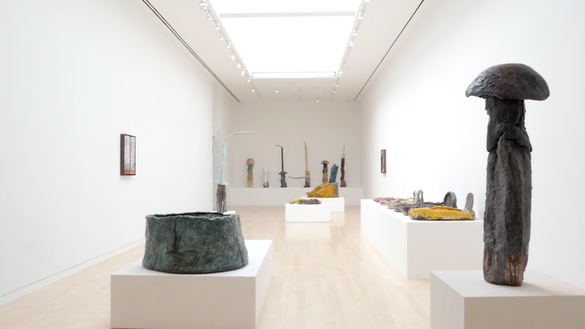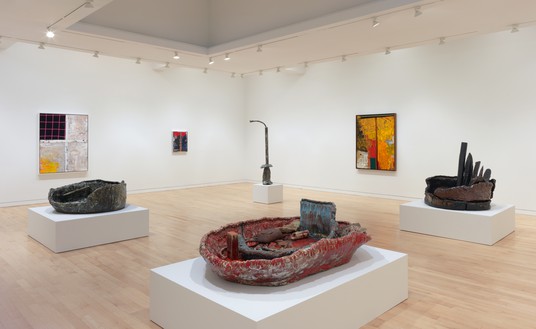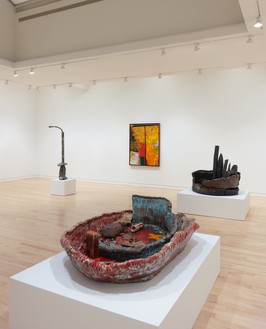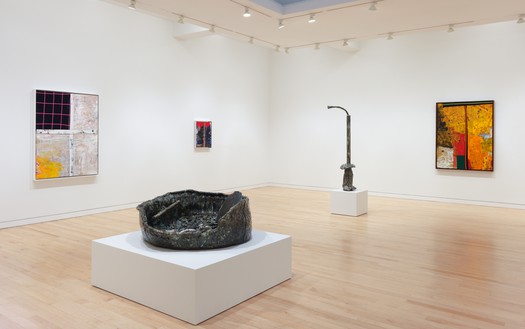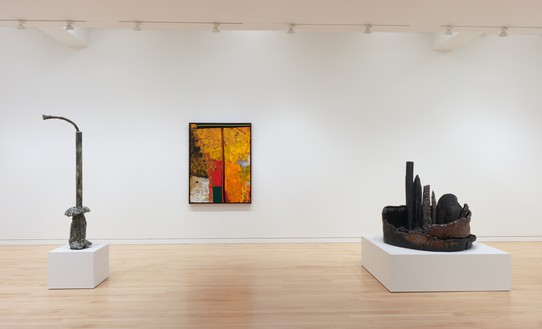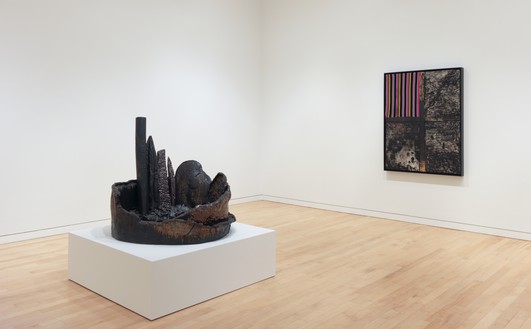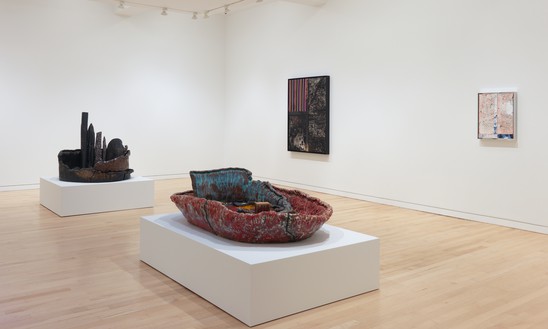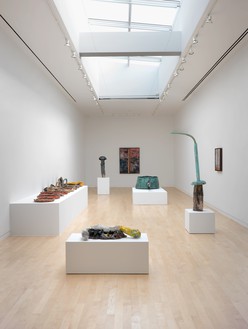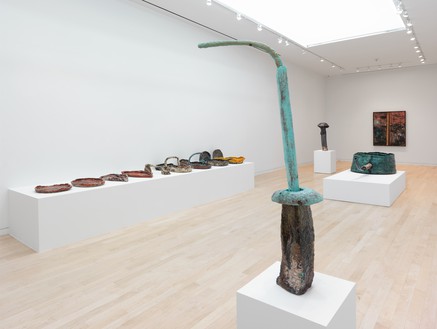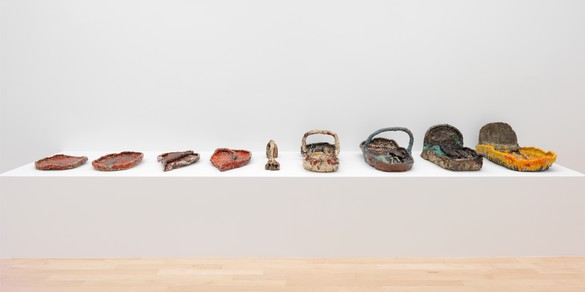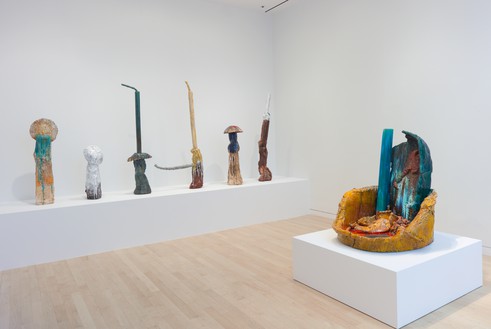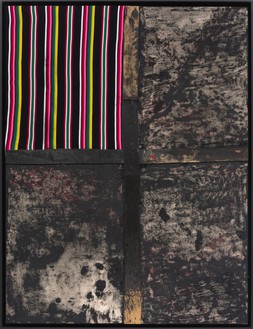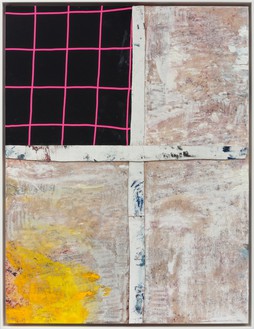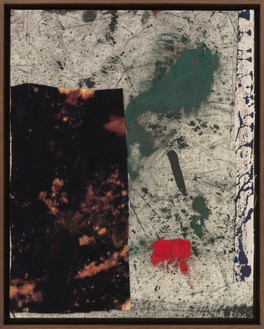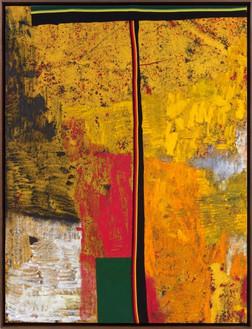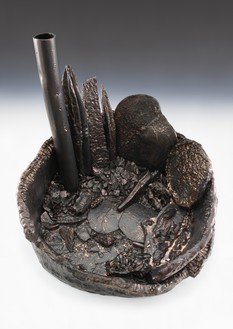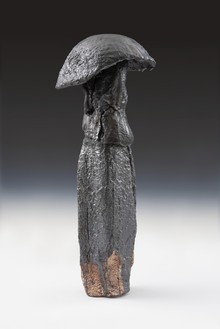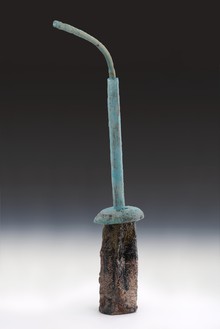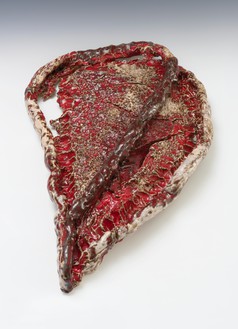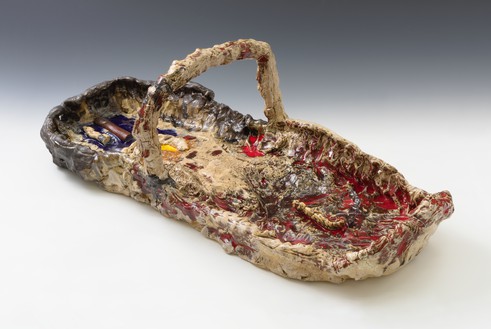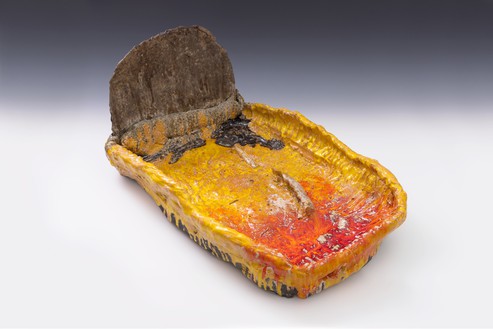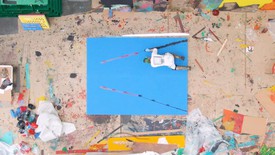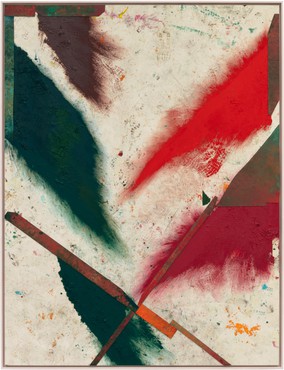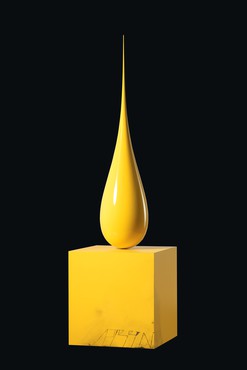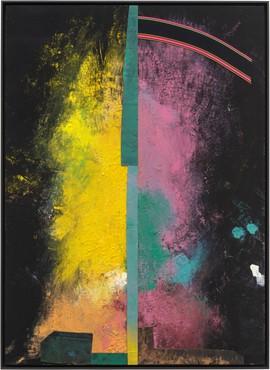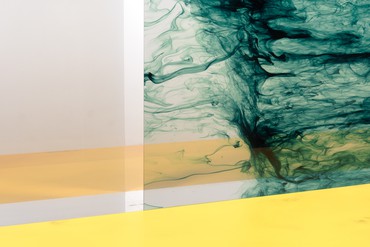About
I am smashing all of my previous attempts and futile contemporary gestures, placing them into a mortar, and grinding them down with a pestle. If I put all of these remnants into a basin, and it gets taken away from me, then I am no longer responsible for all my misdirected efforts.
—Sterling Ruby
Gagosian is pleased to present new ceramic sculptures and paintings by Sterling Ruby.
In his paintings, collages, sculptures, and videos, Ruby infuses the formal with the abject, allowing materials to melt and overlap in biomorphic and geomorphic aggregations. Ruby’s current exhibition features the largest basins that he has produced to date in the Basin Theology series, as well as figurative and totemic ceramics that recall common artifacts. Ceramic cradles bear an eerie resemblance to graves, evoking the cyclical nature of human life, and otherwise abstract totems stand upright, like soldiers in formation. These deep, textured vessels contain studio remnants and discarded fragments set beneath viscous glazes. Their variegated surfaces feature coloristic effects resulting from different stages of kiln firing. In the layered glazes that engulf shards of ceramic debris, vibrant, often eerie, landscapes appear. Entropy gives rise to an entirely new archeological form.
A similar interplay between organic deterioration and artistic reclamation takes place in Ruby’s new paintings. He imposes the past onto the future, and vice versa, adding swathes of oil paint directly over the earlier YARD paintings—which he painted on the grounds of his studio, producing littered impressions and cartographic representations. Ruby introduces cardboard and fabric scraps—readymade refuse from the studio—within painted areas of red, white, and blue; pale pinks and peaches; bright yellows and oranges; and frosty whites set against charred blacks. Expanding upon themes of horizons, grids, prison bars, and window panes, splattered and stained graphic bands and blocks bisect the paintings, forming vantage points and quadrants that advance and retreat. The smaller scale of the works allows for intimate encounters, while their spatial ambiguity disorients, making it difficult to tell whether one is looking out or looking in.
Share
Artist
Download
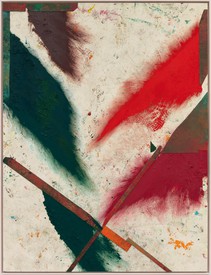
Sterling Ruby: The Frenetic Beat
Ester Coen meditates on the dynamism of Sterling Ruby’s recent projects, tracing parallels between these works and the histories of Futurism, Constructivism, and the avant-garde.
Sterling Ruby: TURBINES
Join Sterling Ruby in his Los Angeles studio as he works on new abstract paintings ahead of his exhibition TURBINES at Gagosian in New York.
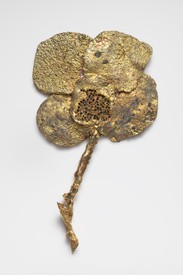
Augurs of Spring
As spring approaches in the Northern Hemisphere, Sydney Stutterheim reflects on the iconography and symbolism of the season in art both past and present.
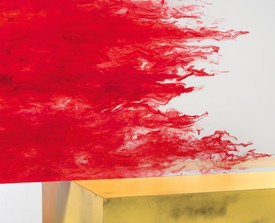
Sterling Ruby: Disjointed Monuments to Nothing
Alessandro Rabottini investigates the theoretical and formal underpinnings of Sterling Ruby’s career through the lens of the artist’s series ACTS.
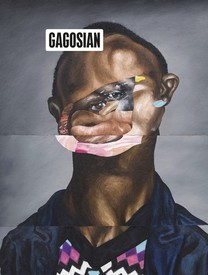
Now available
Gagosian Quarterly Fall 2019
The Fall 2019 issue of Gagosian Quarterly is now available, featuring a detail from Sinking (2019) by Nathaniel Mary Quinn on its cover.
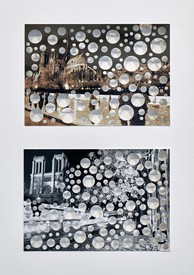
For Notre-Dame
An exhibition at Gagosian, Paris, is raising funds to aid in the reconstruction of the Cathédrale Notre-Dame de Paris following the devastating fire of April 2019. Gagosian directors Serena Cattaneo Adorno and Jean-Olivier Després spoke to Jennifer Knox White about the generous response of artists and others, and what the restoration of this iconic structure means across the world.
